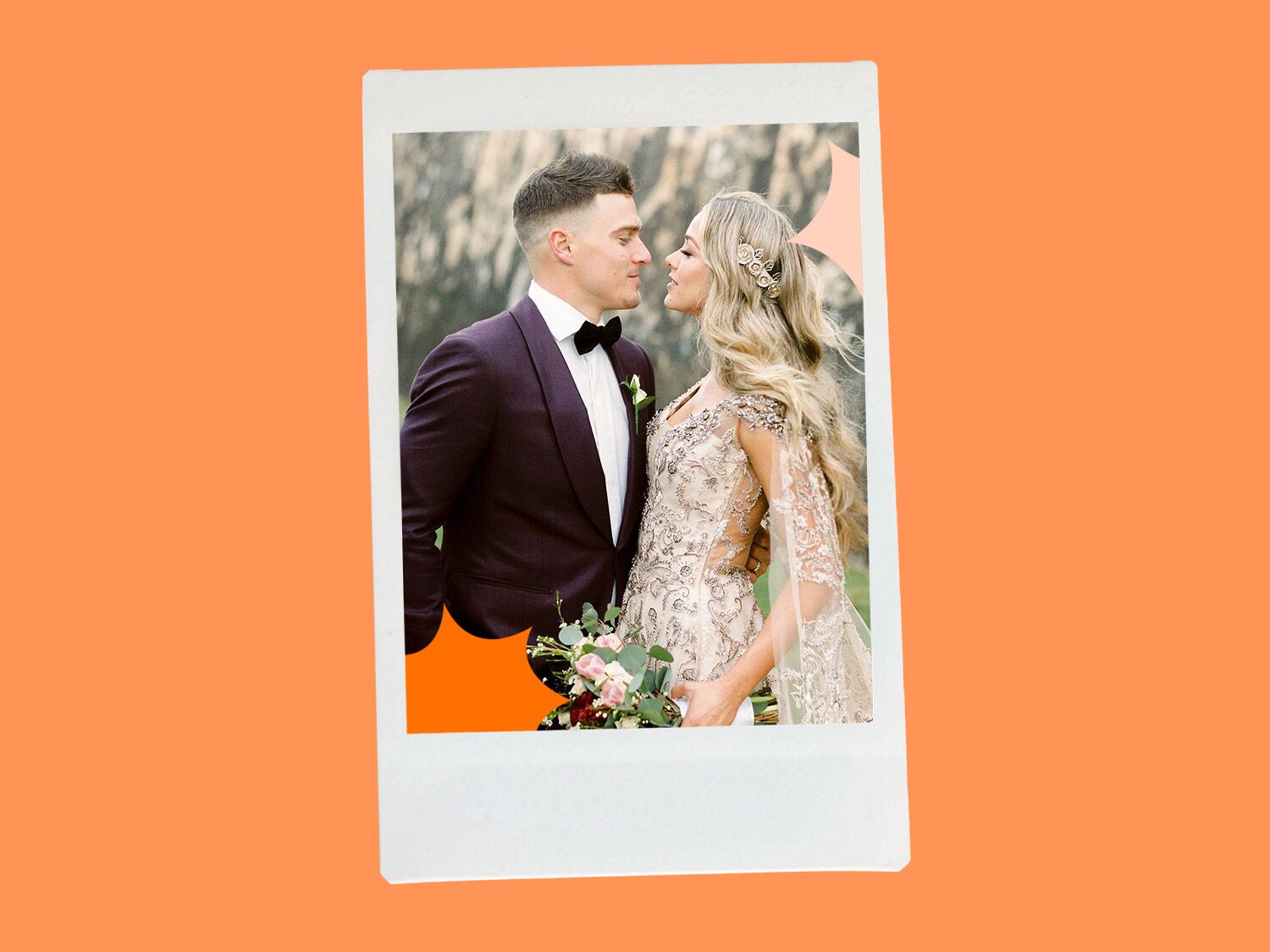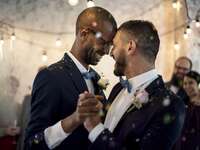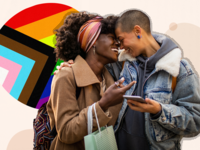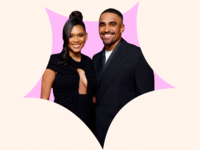Inside the Supreme Court Ruling Involving a Wedding Website Designer
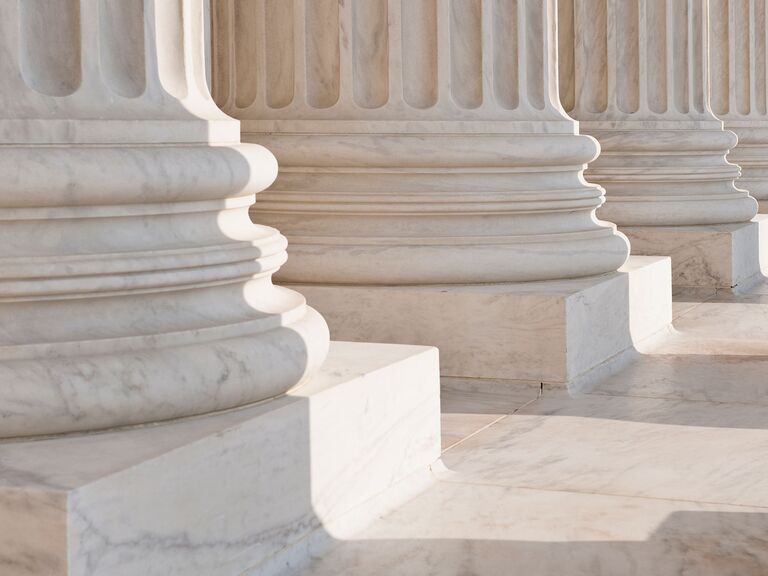
The Supreme Court ruled in favor of a Colorado-based website designer after her refusal to complete work for same-sex couples was determined before the nation's highest court on June 30, 2023.
The case, 303 Creative LLC vs. Elenis, involved a range of topics, including discrimination, creative content restrictions, religion, free speech, and the First Amendment. Lorie Smith, the owner of 303 Creative, first sued the state of Colorado as she started a new wedding-related service as part of her work as a web designer. For religious reasons, Smith claimed she wanted to limit this service to heterosexual couples. The latest ruling unravels protections, particularly for LGBTQ+ couples, whose rights continue to be called into question by the court.
With the ruling, which determined Smith's First Amendment right as a creative, the question is: Can businesses refuse their services based on sexual orientation? Along with 29 other states across the US, Colorado notably has an anti-discrimination law in place that requires any business "open to the public" to provide access to its services heedless of sexual orientation, gender, race and religious preferences. To avoid violating state law, Smith preemptively sued Colorado as she broadened her services to weddings. The ruling opens up the possibility for other businesses across these states to discriminate against LGBTQ+ couples without punishment.
"Attorneys for 303 Creative (including the same attorney, Kristen Waggoneer, who represented the baker in Masterpiece Cakeshop) have argued that the website creator is a creative and that what she does is a form of speech," Lois J. Liberman, a partner at Blank Rome in New York, previously explained to The Knot. "To require [Smith] to provide her creative content, which she argues is a form of speech, 'would violate her beliefs about what scripture holds on marriage… Their argument [was] the Court should follow a rule that says: if the speech is being created and there's an objection–and that objection is contained in the message–it is protected speech and the government can't interfere."
The 6-3 ruling, cascading along ideological lines, ultimately will affect both couples, their loved ones and vendors. Below, we review recent Supreme Court cases related to weddings and the significance of the latest.
In This Article:
- A Recent History of Wedding-Related Supreme Court Cases
- Why the Supreme Court-Wedding Website Ruling Matters
- What This Ruling Means for You
A Recent History of Wedding-Related Supreme Court Cases
Obergefell v. Hodges, 2015
"The most high-profile wedding-related Supreme Court case would be the Obergefell v. Hodges case, which ruled that the fundamental right to marry is guaranteed to same-sex couples by both the Due Process Clause and the Equal Protection Clause of the Fourteenth Amendment to the US Constitution," Liberman explained. "The ruling requires all 50 states, the District of Columbia, etc. to perform and recognize the marriages of same-sex couples on the same terms and conditions as the marriages of opposite-sex couples, with all the accompanying rights and responsibilities."
Masterpiece Cakeshop v. Colorado Civil Rights Commission, 2018
An adjacent example, said Liberman, was another Colorado-based Supreme Court case between the state and a cake baker. The courts ruled in favor of the business owner Jack Phillips, who refused to bake a cake for a same-sex couple due to religious reasons in the state.
"The ruling was more about religious freedom than gay marriage," explained Liberman. "In fact, in that decision, there were stated concerns that the Colorado Civil Rights Commission acted in a hostile fashion towards the baker. Judge Kennedy wrote, 'At the same time the religious and philosophical objections to gay marriage are protected views and in some instances protected forms of expression…The commission's hostility was inconsistent with the First Amendment's guarantee that our laws be applied in a manner that is neutral toward religion.'"
303 Creative LLC vs. Elenis, 2022
Argued on December 5, the case is under extreme scrutiny given Roe v. Wade. "On a serious note: if the outcome is a ruling for 303 Creative, there will be a belief this is a sign of more conservative rulings to come," said Liberman. "If you look to the fact that the Supreme Court overturned Roe v. Wade, combined with the comments made by Justice Thomas about the implications the ruling could have on the legal justification for Obergefell, then there is concern that more freedoms (a woman's reproductive freedom was taken away) are at risk."
Why the Supreme Court-Wedding Website Case Matters
As with any Supreme Court case: however the pendulum swings, many are affected. Conservative justices were sympathetic to the argument presented by Smith's attorney–that which hinges upon the First Amendment. On the other hand, liberal justices expressed concern that a ruling on behalf of Smith could allow businesses to lawfully and openly discriminate against LGBTQ+ couples and minorities.
The court also provided hypotheticals involving race, where Justice Ketanji Brown Jackson raised the example of a mall Santa and a photography product called "Scenes with Santa." The photographer's creative direction is to produce sepia tone pictures from the 40s and 50s of kids with Santa, along the lines of the movie It's a Wonderful Life, she said. "Their policy is that only white children can be photographed with Santa," Justice Jackson elaborated in her example. However, the photographer would refer families that don't fit the direction of the shoot to the Santa "at the other end of the mall." Justice Alito eventually jumped in to ask whether the other Santa, located on the other end of the mall, had the right to deny taking a photo with a child in a Ku Klux Klan outfit. Multiple hypotheticals were raised, including one involving dating platforms.
By perpetuating the lawsuit, Smith saw her right to free speech was violated by the state and she preemptively sought to avoid breaking the law. "Some business owners, like Smith, view their work as art and feel they have the right to fully express their beliefs, a matter of free speech," explained Liberman. "Another argument is that 'no one should be compelled to speak a message.'" The ruling, however, could open doors to discriminatory behavior on creative grounds.
What This Ruling Means for You
Facing discrimination of any kind is likely one of the most disheartening experiences a couple can face as they plan one of the biggest celebrations of their lives. Couples deserve to feel their best on the wedding day–presenting only their most confident and assured selves as they've found love and get to devote festivities to their future marriage.
Unfortunately, a ruling like this can prompt conflict around identity and exacerbate insecurities. "Same-sex couples will certainly feel that their freedoms or right not to be discriminated against will have been denied," Liberman previously expressed. This case and ruling, again, begs the question: when is refusing services legal and when is it discrimination?
The wedding industry, at large, continues to address discriminatory behavior. While much progress has been made, it's clear there's still much more work to unravel discrimination of any kind. "Wedding planning is stressful enough and you want to surround yourself with business owners who want to make your important milestone as special and wonderful as it can be," concluded Liberman. "If your website designer, baker, florist, event planner, tailor, or anyone that you are paying big money to is not feeling simpatico with you (for whatever reason), dump them immediately." Building a vendor team means surrounding yourself with advocates who will help you plan and execute the wedding of your dreams.
On The Knot and WeddingWire, we welcome all couples—no matter their race, color, religion, sex, national origin, ancestry, disability, marital, family, pregnancy status, sexual orientation, gender identity, gender expression, veteran or citizenship status and any other characteristics protected by law—and stand by our core belief of inclusivity.
We make a personal commitment every day to provide the best possible wedding planning experience for all couples and align ourselves with those in the industry who do the same. By partnering with The Knot or WeddingWire, vendors are agreeing to serve every couple to the best of their ability. We respect the personal and religious beliefs of everyone. Our overall goal is to make The Knot and WeddingWire a warm and welcoming community for everyone. As a private business that is open to all, we choose to provide a marketplace with vendors that are also open to all.
We do not permit discrimination of any kind, by, to, or against our consumers, vendors, guests, or employees, and reserve the right to take actions, up to and including removal from the site, in response to any discrimination.

